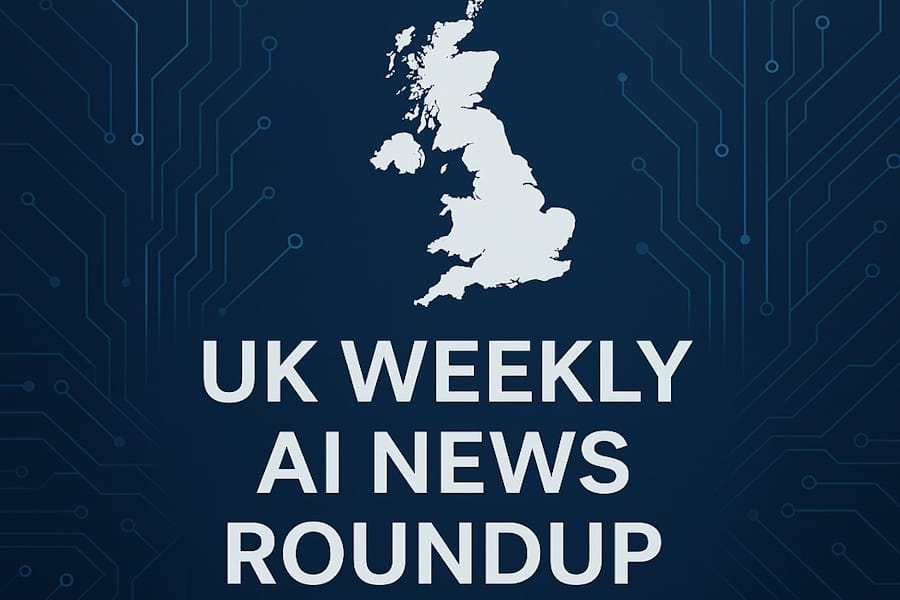The Rise of AI Search: Convenience, Risks, and the Future of the Web

Publish Date: Last Updated: 21st June 2025
Author: nick smith- With the help of GROK3
View this article as a YouTube Short
In a recent news segment, a presenter candidly admitted to relying more on artificial intelligence (AI) than traditional search engines like Google for finding information. This shift is becoming increasingly common, and I’ve experienced it myself. AI-powered search tools often cut through the noise of the internet, delivering concise, seemingly factual answers without the clutter of endless links. But as convenient as this is, it raises critical questions: Is this reliance on AI a good habit? And what does it mean for the websites that depend on human visitors to thrive?
The Power of Search: A Concentrated Landscape
To understand the implications of AI search, it’s worth revisiting the state of traditional search engines. In a previous article, I explored how, despite the appearance of numerous search engines, the market is dominated by just two major players: Google and Microsoft’s Bing. Most other search engines rely on these two to build their indexes, meaning a handful of companies control the flow of online information. This concentration of power is already concerning in an era where commerce and communication live online. A high search ranking can make or break a business, and exclusion from these platforms can render a website invisible.
AI search introduces a similar dynamic, but with a twist. Instead of a list of links, AI often provides a single, synthesized answer. The mobile market, where much of this AI-driven search takes place, is dominated by a few key players like OpenAI, Google’s own AI efforts, and others. This consolidation mirrors the search engine landscape, raising questions about who controls the information we receive and how it’s curated.
The Allure and Risks of AI Search
The appeal of AI search is undeniable. It saves time by delivering answers quickly, often summarizing complex topics in a way that feels intuitive. For example, in programming, AI tools can generate code, write complex queries, or debug errors in seconds. I’ve personally saved hundreds of hours using AI for Node.js and JavaScript development, from crafting regex patterns to automating repetitive tasks. It’s a game-changer for efficiency.
But there’s a catch. AI isn’t infallible. General-purpose AI, often used for search, is known to “hallucinate,” generating plausible but incorrect information. Unlike traditional search engines, which provide millions of pages to cross-reference, AI search typically delivers a single response. If you don’t verify it against other sources, you might unknowingly base your work on flawed data. In programming, this can be particularly dangerous—outdated or incorrect code can introduce security vulnerabilities, potentially leading to data breaches or financial losses.
My own experience with AI in coding highlights this issue. While AI has been a lifesaver, it often defaults to outdated JavaScript practices, like ignoring modern private class fields or variables. I’ve had to repeatedly prompt it to use current standards, which it should ideally do by default. This underscores a broader problem: AI’s output is only as good as its training data, and that data can reflect biases, gaps, or errors.
The Threat to the Web’s Ecosystem
Beyond the risk of inaccuracies, AI search poses a deeper threat to the internet as we know it. Traditional search engines drive traffic to websites, which rely on human visitors for ad revenue, subscriptions, or sales. But when AI delivers a single answer, users have little reason to visit the original sources. As a website owner, I’ve noticed an increasing number of “hits” from AI bots scraping data, while human traffic remains critical for generating income. If users grow accustomed to getting answers directly from AI, websites—especially smaller ones—could struggle to survive.
This shift could have far-reaching consequences. The web is a vibrant ecosystem of diverse voices, from independent bloggers to niche news outlets. If AI search reduces traffic to these sites, many may disappear, leaving us with a less varied, less democratic internet. Moreover, the concentration of AI search in a few companies raises concerns about control. These systems are built and tweaked by humans, whose biases or agendas could shape the information we receive. Without transparency into how AI prioritizes or filters data, we risk being fed a curated version of reality—one that may hide contradictory or inconvenient truths.
The Bigger Picture: Democracy and Knowledge
The implications extend beyond websites to the very way we think and engage with information. AI’s ability to provide quick, authoritative answers can feel like having a mentor or coach on demand. But this convenience comes with a cost: overreliance on a single source. When we stop cross-referencing or seeking out primary sources, we surrender our ability to critically evaluate information. In a world where disinformation and “fake news” are already rampant, this is a dangerous habit.
AI’s training data is another point of concern. If the data it’s built on is biased—whether due to human error, incomplete sources, or deliberate manipulation—the results will reflect those flaws. For example, if an AI is trained on datasets that underrepresent certain perspectives, it may produce skewed answers that reinforce existing inequalities or narratives. This isn’t just a technical issue; it’s a democratic one. The knowledge we consume shapes our decisions, from how we vote to what we believe about the world.
Striking a Balance: Using AI Wisely
So, what’s the solution? AI is here to stay, and it’s one of humanity’s most remarkable tools. It can save time, simplify complex tasks, and unlock new possibilities. But we must use it thoughtfully. Here are a few steps to ensure we harness AI’s power without falling into its traps:
-
Cross-Check with Traditional Search: Don’t abandon search engines entirely. Use them to verify AI-generated answers and explore primary sources. This ensures you’re not blindly trusting a single output.
-
Stay Aware of AI’s Limitations: Recognize that AI can hallucinate or produce outdated information. In fields like programming, always test and validate its output.
-
Support the Web’s Ecosystem: Visit websites directly, especially independent ones. Engage with their content, share it, and consider supporting them through subscriptions or donations.
-
Demand Transparency: Advocate for clarity from AI companies about how their systems are trained and how they handle biases. This is crucial for maintaining trust in the information we receive.
The Future of Search and the Web
AI search is transforming how we access information, offering unmatched convenience but also new risks. As we embrace this technology, we must remain vigilant about its limitations and the broader impact on the web. By balancing AI’s efficiency with traditional research methods, we can protect the diversity of the internet and ensure we’re not surrendering our critical thinking to a handful of algorithms.
The web is more than a collection of data points for AI to scrape—it’s a living network of human creativity, knowledge, and commerce. Let’s use AI to enhance our understanding, not replace it. By striking this balance, we can harness the power of AI while preserving the open, dynamic internet we all rely on.
Latest AI News Articles
AI Questions and Answers section for The Rise of AI Search: Convenience, Risks, and the Future of the Web
Welcome to a new feature where you can interact with our AI called Jeannie. You can ask her anything relating to this article. If this feature is available, you should see a small genie lamp above this text. Click on the lamp to start a chat or view the following questions that Jeannie has answered relating to The Rise of AI Search: Convenience, Risks, and the Future of the Web.
Be the first to ask our Jeannie AI a question about this article
Look for the gold latern at the bottom right of your screen and click on it to enable Jeannie AI Chat.







